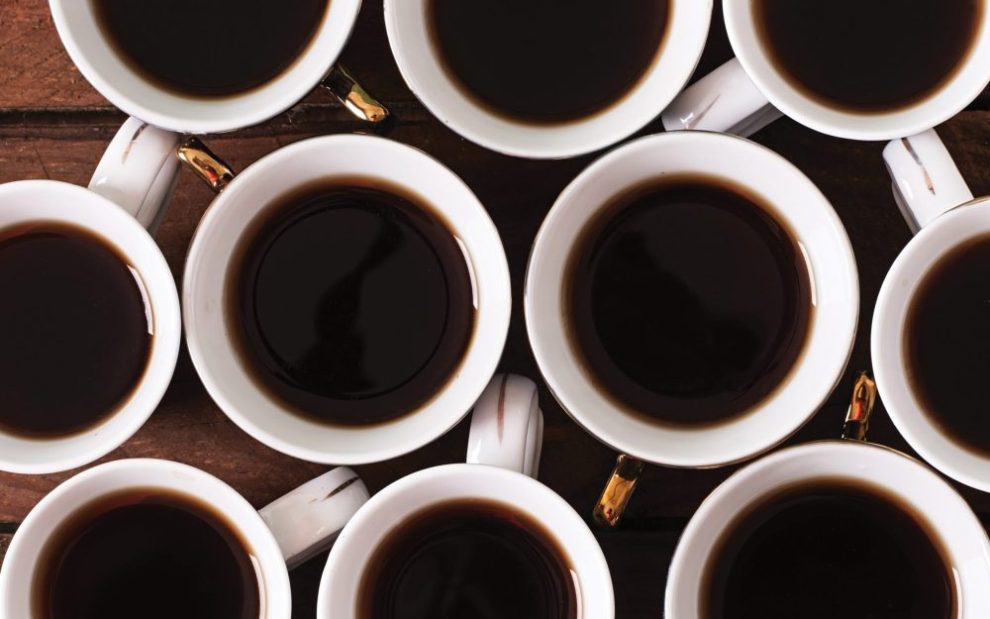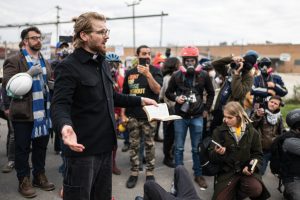A recent article in the Wall Street Journal highlighted an alarming trend: teen consumption of energy drinks. One high schooler said she was drinking four cans a day, plus taking caffeine pills at night—the equivalent of more than 10 cups of coffee and 10 times the FDA-recommended daily limit for caffeine.
This story combines with many other behavioral trends to create what social psychologist Jonathan Haidt calls the “anxious generation.” Young people in their formative years are experiencing destabilizing shifts in the patterns of typical childhood—and they are paying a heavy price for it, creating a mental health crisis of unprecedented scope.
Meanwhile, adults seem paralyzed. Schools try to ban energy drinks, but students just put them in alternate containers or binge prior to the school day. Many teens become involved in a flurry of résumé-building classes and activities, while at the same time, studies show non-school screen time at unbelievable levels; a 2020 Centers for Disease Control (CDC) study found that young people between 11 and 14 spend an average of almost nine hours a day in front of screens (and that time doesn’t include using a computer for schoolwork). A day just doesn’t have enough hours for young adults to consume everything our society has on offer. Perhaps we could name the underlying problem as the need for speed.
Pope Francis speaks of the “rapidification” of life as a crucial aspect of the environmental crisis. We frequently blame planes, cars, and industrial pollution for our planet’s ongoing climate change, but recent reports highlight the way AI causes alarming increases in power consumption. In the race to train ever-more powerful models and routinize AI’s use in all aspects of our lives, we forget how much computing power goes into producing those “instantaneous” compositions. The International Energy Agency forecasts that by 2026, AI will consume as much energy in a year as the entire country of Japan does.
Such technological advances seem to appear as “inevitable progress,” even though the pope warns us in Laudato Si’ (On Care for Our Common Home) that every technological decision is about the “interests of certain powerful groups.” In reality, the pope goes on to say, these are “decisions about the kind of society we want to build.”
Myriad books try to teach us to slow down. Nearly every great spiritual tradition develops practices to do so, such as meditation or other rituals. But as any worker, parent, or student knows, it’s not that simple. The pace of life is not simply an individual decision; the structure and norms of our culture inevitably shape our lives.
Pope Francis speaks of the “rapidification” of life as a crucial aspect of the environmental crisis.
The student described at the beginning of this article is taking multiple Advanced Placement (AP) classes, plays two sports, and serves on the student council. This level of involvement seems normal to many teens; it’s simply “what you have to do.” Any professional who has tried to spend less time on email recognizes the same problem. Just as we strive to keep up with traffic when we’re driving on the highway, we feel we have to keep up with what everyone else is doing. We can’t simply set our own pace independently from the world around us.
The funny thing is, as we have sensed for several generations, “timesaving” technological advances can leave us feeling busier than ever. Timesavers become time-sucks. Of course, to quote Pope Francis again, “nobody is suggesting a return to the Stone Age.” But modern society has failed to deliver on its promise of more time.
What’s the real problem? A country song titled “I’m in a Hurry (And Don’t Know Why)” is a good description of what’s going on. We fail to identify why we are doing something, a key aspect of discernment when it comes to any ethical problem. When we perceive the end goals, we can more clearly see why we drink so much caffeine or consume so many technological goods. None of these things are ends in themselves; they are only means. But means to what?
The point of having more, as St. Pope Paul VI says, is to “be more.” He explains that we must have a strong sense of our true vocation from God in order to know how to find our way amid endless consumer choices.
The same is ultimately true about the speed of life: A good life is not built on consuming the most experiences or feeling stimulated all the time. In Laudato Si’, Pope Francis speaks about recovering the virtue of “sobriety”; while this virtue can apply to limiting the alcohol we drink, the pope mainly talks about finding the right pace of life. The contrasting vice might be “frenzied” or “frantic.” He contrasts those who live their lives “dipping here and there, always on the look-out for what they do not have” with people who “experience what it means to appreciate each person and each thing, learning familiarity with the simplest things and how to enjoy them . . . reducing their obsessiveness and weariness. Even living on little, they can live a lot.” Instead of rushing from one thing to another, these people connect deeply with the thing or person right in front of them.
The pope names several experiences that can cultivate this ability to live more slowly and deeply: friendship, service, developing our gifts, music and art, nature, and prayer. But if we were to start adding these to our never-ending to-do list, we’d be missing the point. Finding the right pace for our lives is not an easy question with right or wrong answers.
It’s a question that needs collective wisdom to answer. Above all, the scriptures’ teachings on the Sabbath are intended to place a weekly limit on our frenzied world; we ignore this teaching at our peril. However, our society is unlikely to turn off the internet one day a week; we’ve made ourselves dependent on it in too many ways. (Admittedly, though, doing so would make for a remarkable release we could all experience together!)
At the very least, in our own communities, workplaces, schools, and parishes, we should ask collectively how we might act to slow down the pace of life for everyone. As we pool our answers, we can find ways to give ourselves a collective breather—and we can use that time to reflect on what really matters: loving God and loving our neighbor.
This article also appears in the December 2024 issue of U.S. Catholic (Vol. 89, No. 12, pages 40-41). Click here to subscribe to the magazine.
Image: iStock













Add comment